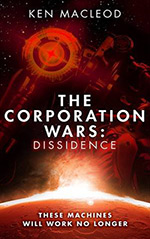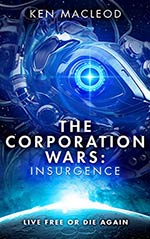Flight Proven
One of the reasons we read science fiction is to find out what happens next. My favorite science fiction sub-genre is near future, precisely because I want someone to tell me what to expect a decade from now, a year from now, a month from now. Half the fun is discovering the future through speculative fiction. The other half is watching it come true. That is why I started writing this series of blog posts about near future developments, starting with last year’s Greetings Carbon Based Gases. Today’s topic: the gravity well.
Tonight, sometime between 2227-0030 GMT (6:27-8:30 p.m. EDT), SpaceX will launch a “flight proven” rocket for the first time. “Flight proven” is Elon Musk’s euphemism for “used.” It was only last April when the rocket in tomorrow’s launch performed its last mission, The CRS-8:
If and when that rocket launches successfully, today, Musk will have accomplished something thought impossible not too long ago, even quite recently. As we reported in 2012, it costs $10,000 per pound to launch something into orbit. At least, it did back then. Today, Musk says he charges $2,500/lb and aims to have that down to $1000/lb this year, when the Falcon Heavy comes online. Knocking one zero off of NASA’s flight costs is a remarkable achievement, but Musk has predicted he’ll do it again ($100/lb), and some have even speculated a fantastical cost of $10/lb in about 8 years.
Even if that last prediction doesn’t pan out, the consensus seems to be that $100/lb is the point at which many of our sci fi fantasies could come true. That’s good news for science fiction writers, who Neal Stephenson has said have been too pessimistic, as of late. So, what can budding new sci-fi writers reasonably predict in the wake of tonight’s launch?
Ryan Faith over at Vice had one idea of how it would go (bolded emphasis added by mois):
“SpaceX wants to get prices down far enough to encourage new users because that’s how they can really start incorporating space in the economic mainstream. Such a change could allow for economies of scale, getting a meaningful slice of global capital flow, industrial synergies, and more.
Once you get to that point, you can start talking much more seriously about building big space stations — the kind of thing dreamed up by 2001: A Space Odyssey. It wouldn’t be like the International Space Station, but more like a big Hilton with a fancy cocktail bar. Granted, drinks at that interstellar cocktail bar could be twice as expensive as normal because of shipping costs — but hey, the views of Earth would totally make up for it.”
In the spirit of Mr. Musk’s iterative approach, I will add more ideas as the evening wears on. Please feel free to add more in the comments section.
As I type this, it is T-minus 2 hours to the launch window, so I’m going to hit “publish,” for now. Check this post for post-launch updates.
UPDATE: In case you missed it, watch the day’s coverage of the launch here:
UPDATE: Success!
2017 Prometheus Award Finalists
The Libertarian Futurist Society has announced the finalists for the 2017 Prometheus Award, honoring pro-freedom works published in 2016.
- Dissidence by Ken MacLeod (Orbit)
- Insurgence by Ken MacLeod (Orbit)
- The Mandibles by Lionel Shriver (HarperCollins)
- The Core of the Sun by Johanna Sinisalo (Grove Press/Black Cat)
- Blade of p’Na by L. Neil Smith (Phoenix Pick)
The award will be presented in a ceremony during Worldcon 75, to be held August 9-13, 2017 in Helsinki Finland. Our congrats to all the finalists! Who do you think is going to win?
Valerian and the City of a Thousand Planets: Trailer 2
This looks like a whole truckload of fun. Some really excellent special effects on display and the colors are amazing. I hope the story holds up.
Is Oasis Science Fiction?
Amazon has rolled out a pilot for a new science fiction series called Oasis, based on the novel The Book of Strange New Things by Michel Faber. Unfortunately, I have not read the novel. The novel’s description barely sounds like what unfolded in the pilot. Readers compare the book to A Case of Conscience or A Canticle for Leibowitz, while I thought of Solaris while watching the TV show. Because we’ve only seen the 59-minute pilot, there’s no telling where the show will go, but I hope it incorporates more of the book – The Book of Strange New Things sounds fascinating.

As I watched the pilot, I felt I was seeing a series of iconic science fiction tropes that should appeal to the average science fiction fan looking for a new science fiction show. The only thing, the story didn’t feel very science fictional – at least not so far, and not to me. Peter Leigh (Richard Madden) is a pastor/chaplain whose wife has died and he’s mysteriously invited to travel to another planet because they claim to desperately need his skills. Peter arrives at the colony world only to find a miserable outpost where people suffer from menacing hallucinations. Three have died already. In the book, the preacher goes to another planet to teach the natives about Christianity. Now that could still happen in the television series, but the pilot didn’t introduce any native inhabitants on the colony world. It seems quite barren.
I ask, “Where’s the science fiction,” because of the nature of the story. It feels like a mystery. Why is a pastor needed to solve what might be a psychological or medical problem? Why are the people hallucinating? The same plot could be set on Earth today. Of course, this might reflect my jaded feelings toward science fiction. Spaceships and colony worlds don’t equal science fiction to me anymore. Conflicts built around off-world corporate shenanigans or galactic palace intrigue no longer means science fiction to me. I need something more.
All too often stories are called science fiction because of their costumes, sets, and scenery. A single-action .45 makes a western, a 9mm Glock makes a thriller, and a ray-gun makes a science fiction story if the plot is only about good guys vs. bad guys. That’s not good enough for me. I need science speculation in my science fiction.
Arrival had its audience thinking about communicating with aliens and how difficult that could be. I’d call that science fiction. The Martian and Gravity both dealt with problems unique to space exploration. Even Passengers which was nearly all Sci-Fi set redeemed itself with a uniquely ethical problem that would only come about because of long space missions using suspended animation.
So far Oasis seems completely cliché to me. I do hope it goes into production and explores new science fiction territory. The pilot had the feel of too many other science fiction series, but it hints at potential. The appearance of humans working in space is starting to develop a mundane sameness, which is a problem for many new SF shows. That’s why I loved the visuals of Gattaca – it made the future look different.
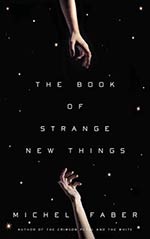 I fell in love with science fiction because of its ability to imagine things never imagined. Too often current science fiction works from templates. Every genre has to worry about running its tropes into the ground. And if you live long enough, it appears every genre does that.
I fell in love with science fiction because of its ability to imagine things never imagined. Too often current science fiction works from templates. Every genre has to worry about running its tropes into the ground. And if you live long enough, it appears every genre does that.
Of course, getting older is my problem. The young people who create and consume science fiction today probably won’t see what I’m talking about. At least not until they get older. I still crave new science fiction. It’s hard for me to find it when everything new looks old. For example, I admire Humans. But even its ideas are old. Still, I love Humans for presenting ideas about robots, AI, and consciousness in a fresh way.
Oasis did not seem fresh to me, or even science fictional, but that could change. The trouble is, I compare all first episodes to the first episode of Breaking Bad, which is a ridiculously high standard. All my favorite series have had a gang-buster of a first episode. That has me worried about Oasis, but I’m trying to stay positive. I think I’ll go read The Book of Strange New Things while waiting to see if Oasis gets the green light.
2016 James Tiptree, Jr. Award Winner
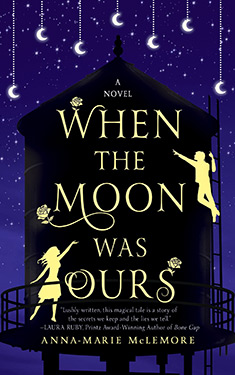
 The 2016 James Tiptree, Jr. Award, for works of speculative fiction which explore and expand gender, has been announced.
The 2016 James Tiptree, Jr. Award, for works of speculative fiction which explore and expand gender, has been announced.
Winner:
- When the Moon Was Ours by Anna-Marie McLemore
Honor List:
- Hwarhath Stories by Eleanor Arnason
- Borderline by Mishell Baker
- “Opals and Clay” by Nino Cipri
- Will Do Magic for Small Change by Andrea Hairston
- “The Night Bazaar for Women Becoming Reptiles” by Rachael K. Jones
- Every Heart a Doorway by Seanan McGuire
- Too Like the Lightning by Ada Palmer
- The Core of the Sun by Johanna Sinisalo
- Everfair by Nisi Shawl
Our congrats to Anna-Marie McLemore and all the Honor List members. You can read more details about each selection on the official Tiptree website.
What do you think of this list? Any favorites in there?
A Distance Too Far
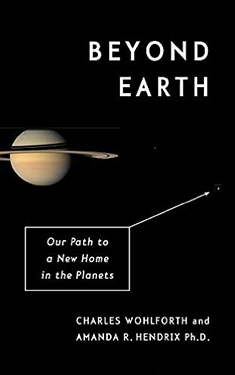 In Beyond Earth: Our Path to a New Home in the Planets, Charles Wohlforth and Amanda R. Hendrix propose colonizing Titan, the largest moon of Saturn, and the second largest moon in the solar system. They reject constructing colonies on Mars and the Moon, claiming Titan offers the most resources for creating a permanent human settlement.
In Beyond Earth: Our Path to a New Home in the Planets, Charles Wohlforth and Amanda R. Hendrix propose colonizing Titan, the largest moon of Saturn, and the second largest moon in the solar system. They reject constructing colonies on Mars and the Moon, claiming Titan offers the most resources for creating a permanent human settlement.
Even though I don’t buy their premise, Wohlforth and Hendrix have written a book that nicely sums up the current knowledge on human space travel. What’s damning and depressing is their long litany of obstacles we face living in space. Over the years I’ve read news reports about the various dangerous health effects of space travel, but reading them all in one place makes me wonder if science fiction is completely wrong about the future of humans in space.
Oddly enough, near the beginning of their story, Wohlforth and Hendrix report books on space colonization are never taken seriously by professionals in the space industry. Evidently, such wild ideas are a danger to the careers of real space scientists. Wohlforth and Hendrix say books about colonizing space give amateur space enthusiasts hope, but those folks lie on the fringe, closer to science fiction fans than scientists. I’m a space enthusiast and a science fiction fan, so Beyond Earth is my kind of book, but I couldn’t help taking this news as a slight.
Between what W&H report on the dangers of space travel and the politics of the space industry, it feels like they have damned their own hopes in Beyond Earth to oblivion. The upside of their story is the reporting on private space programs, like SpaceX. That news is very encouraging, if not inspirational.
However, I have a problem with colonizing Titan. It’s a distance too far. Earth’s moon is three days away, Mars is six months. Titan is seven years! Wohlforth and Hendrix do make a case for faster space travel, but even if Titan was only hours away, it’s still too far, too cold, too strange, and, too inhuman. Science fiction hasn’t prepared us for living on Titan like it has for the Moon and Mars.
For the past fifty years, I’ve heard many arguments for colonizing the Moon or Mars. The whites and the reds, you might say. We know those worlds well enough to feel they aren’t so strange. They are barren, not fit for man nor beast, but we have already psychologically imagined ourselves there nonetheless. Titan is too far in distance and conceptualization.
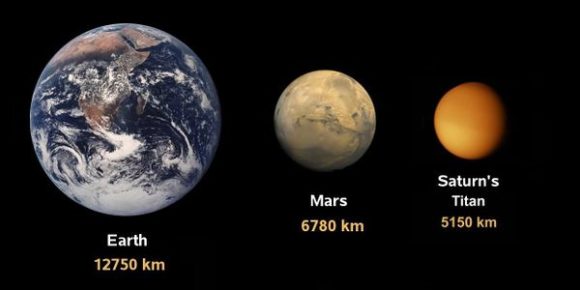 From all the medical studies that Wohlforth and Hendrix review, I’m not sure humans are meant to live in space at all. Maybe our science fictional dreams are flat-out impractical. No matter what hurdle Wohlforth and Hendrix report, they don’t get discouraged, always coming up with hopeful workarounds. I was discouraged. Is it time for science fiction to start speculating about futures where humans never leave Earth? When do we give up? I’m not ready yet, but I do believe we need to start contemplating the possibility.
From all the medical studies that Wohlforth and Hendrix review, I’m not sure humans are meant to live in space at all. Maybe our science fictional dreams are flat-out impractical. No matter what hurdle Wohlforth and Hendrix report, they don’t get discouraged, always coming up with hopeful workarounds. I was discouraged. Is it time for science fiction to start speculating about futures where humans never leave Earth? When do we give up? I’m not ready yet, but I do believe we need to start contemplating the possibility.
After reading Beyond Earth I believe we should put all our manned space efforts into building bases on the Moon. We need to test humans living in low gravity for years. We’ve already discovered that living in microgravity for longer than six months causes permanent bodily damage. We’re learning that living in space will eventually cause permanent brain damage from galactic radiation. The safe time limit might be just 1-2 years, and there’s no practical shielding for spacecraft.
 We should send robots to the Moon to construct an underground city safe from radiation. Those robots need to mine all the resources on the Moon that’s possible, so we fly the least weight from Earth. Robots should then fill the underground city with plants and test animals. When the robots have created a sustaining livable habitat, then send humans to stay for several years. Only then will we know what happens to our bodies living in less than 1 G. After we’ve gained knowledge from such an experiment, then we’ll know if we should travel greater distances. If we survive living on the Moon, then go to Mars or even Titan.
We should send robots to the Moon to construct an underground city safe from radiation. Those robots need to mine all the resources on the Moon that’s possible, so we fly the least weight from Earth. Robots should then fill the underground city with plants and test animals. When the robots have created a sustaining livable habitat, then send humans to stay for several years. Only then will we know what happens to our bodies living in less than 1 G. After we’ve gained knowledge from such an experiment, then we’ll know if we should travel greater distances. If we survive living on the Moon, then go to Mars or even Titan.
Wohlforth and Hendrix make a great case that we’re intentionally ignoring medical evidence. That we don’t want to believe that space is ultimately unhealthy. That our gung-ho nature makes us believe we can either use technology to overcome obstacles, or we can push our bodies further than the evidence suggests. I wonder if such optimism is just a way of fooling ourselves because we don’t want our science fictional dreams to come to an end.
I don’t know about you, but Titan is too far for me. What if Mars and the Moon are too far too? As Beyond Earth progresses it becomes more like science fiction than science fact. Anyone who writes science fiction might want to mine it for ideas. On the other hand, this book’s optimism makes me question the optimism of science fiction. Should we expect the future to give us everything we imagine?
Recommended Reading



















 Full Details
Full Details
